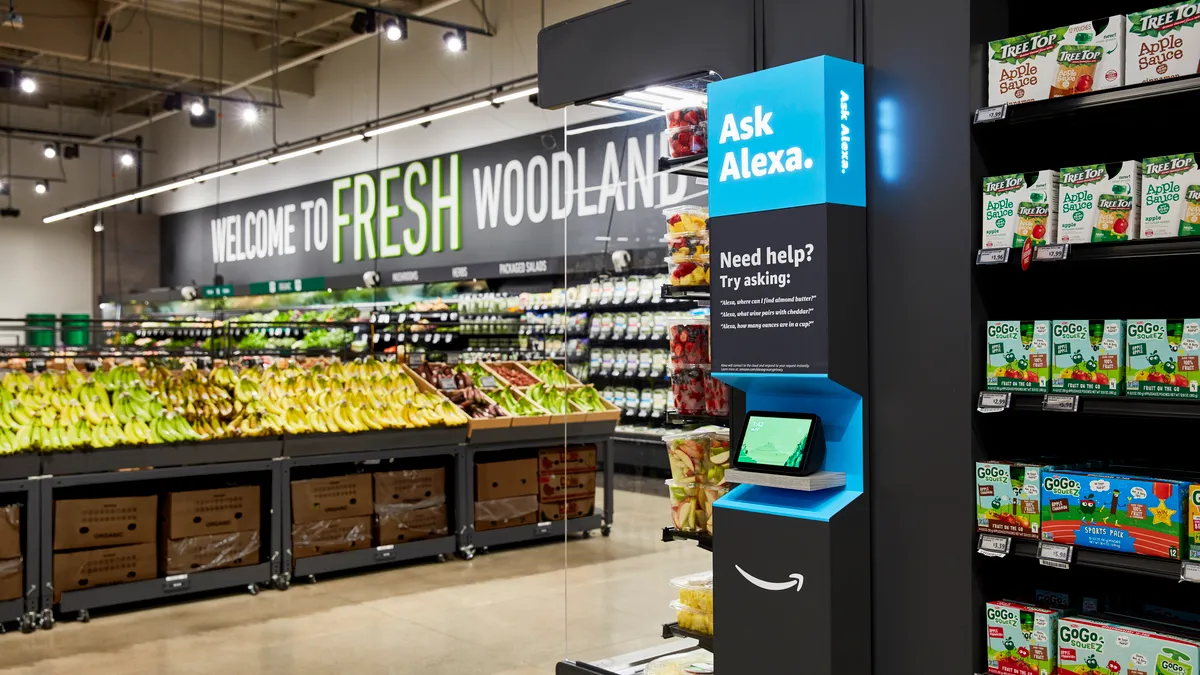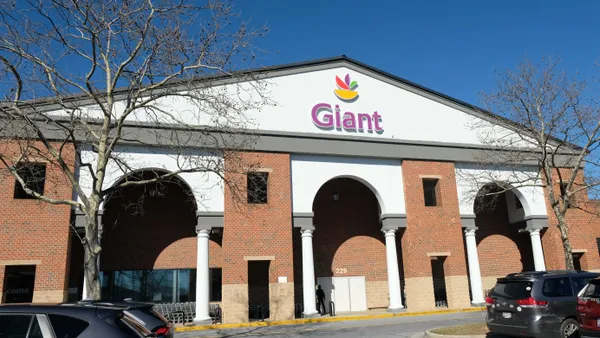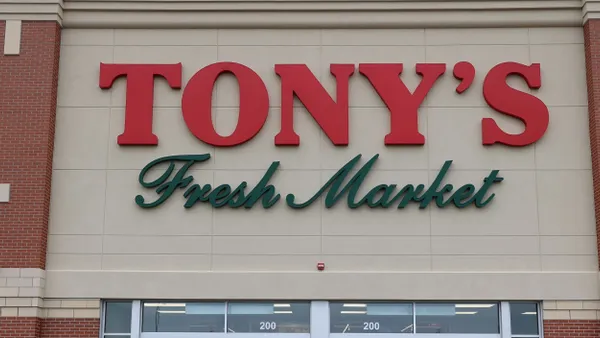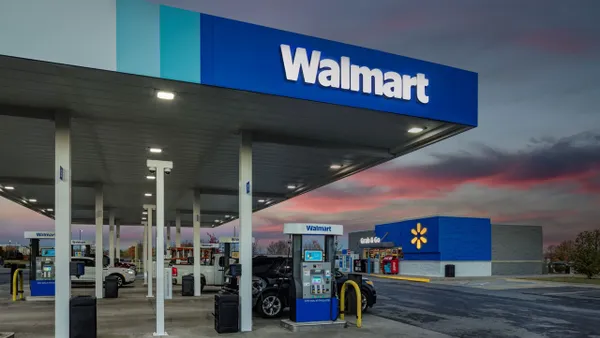Dive Brief:
- Amazon rode its strengths as a digital merchant and its ability to serve customers quickly to secure the No. 1 spot in the 2021 Retailer Preference Index, an annual survey of the U.S. grocery market conducted by market research firm Dunnhumby.
- The e-commerce giant also benefited from the perception among consumers that it offers fair prices as it surpassed H-E-B and Trader Joe’s, which both held the top position in previous rankings and nabbed the No. 2 and No. 3 spots, respectively, on this year's list. Wegmans, Aldi, Market Basket, Sam’s Club, Costco and Publix filled in the remaining slots among the top 10 retailers in this year's survey, which reflects responses from 10,000 households in the United States.
- Amazon surged resoundingly to first place during a year when customers placed an especially high priority on speed and e-commerce as they sought safe ways to stock up on groceries.
Dive Insight:
After years of honing its reputation as a digitally advanced retailer that gives people access to an enormous range of products without requiring them to set foot in a store, Amazon found itself in an enviable position when peoples’ concern about the novel coronavirus pandemic seized control of shopping behavior.
Between offering a reliable online shopping experience and offering checkout-free shopping at its growing number of brick-and-mortar stores, Amazon gained momentum in 2020 at a rate that placed it well ahead of its competitors, Dunnhumby found.
Those abilities gave Amazon an edge when compared with retailers that depended on measures such as extra sanitation at checkout counters and one-way aisles, which slowed people down as they looked to leave stores with their purchases. “Far more than any other preference driver, speed to shop is correlated with safer to shop,” the Dunnhumby team wrote in its report.
The pandemic disrupted what Dunnhumby referred to as the competitive trajectories of a range of food retailers. Food Lion, Target, Kroger and BJ’s Wholesale Club also moved up in the study, which recorded consumers' opinions about 57 retailers. Walmart and WinCo Foods, meanwhile, recorded the most significant drops.
While Target and Walmart are often seen as archrivals and share Amazon and Aldi as top key competitors, Target outdid Walmart when it came to people’s sense of how long it took to complete a shopping trip, Dunnhunby found. That gave it a clear advantage over Walmart even though the latter retailer is generally known for offering what Dunnhumby refers to as a higher "value core."
Dunnhumby said it believes shoppers will return to paying closer attention to price as the pandemic subsides, and recommended that retailers with a reputation for offering large discounts on certain items rather than “everyday low prices” take steps to shore up their images where value is concerned sooner rather than later.
Dunnhumby changed its survey methodology when conducting its latest research to account for the large-scale shifts in shopping patterns brought on by the pandemic. In doing so, the research company sought to gauge how well each retailer’s customer value proposition positions it for long-term success against a backdrop of the momentum generated by the health crisis.
Although that momentum built up during a relatively short frame, the pandemic has been long enough that it may well have etched permanent changes in how U.S. consumers think about grocery shopping, Dunnhumby suggested.
“[Neither] we nor any retailer should dismiss the COVID Era changes in consumer behaviors or preferences as definitively temporary, especially given the length of the COVID Era and how long these new behaviors have had to wear new grooves in consumers’ brains and lives,” according to the report.













